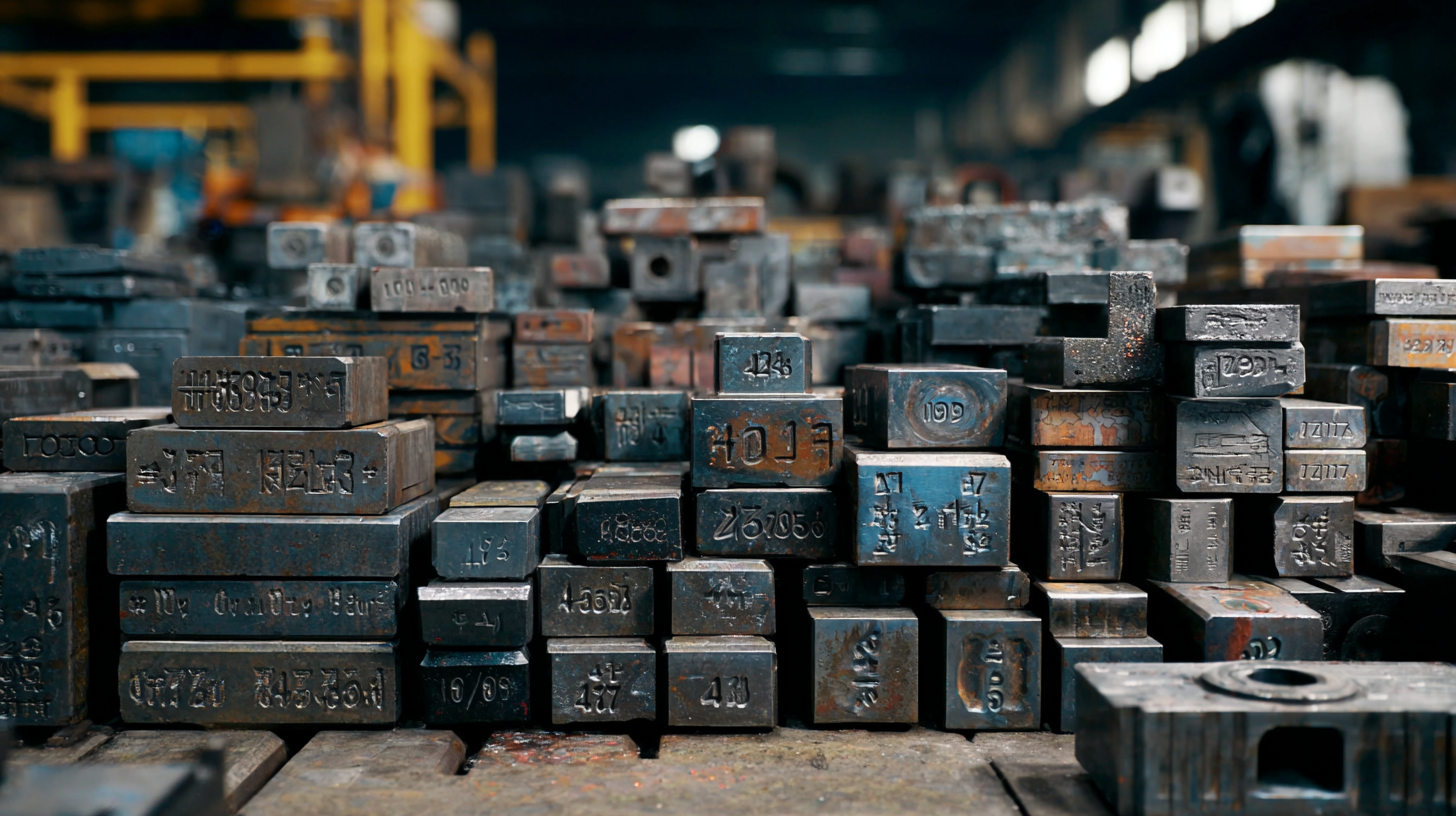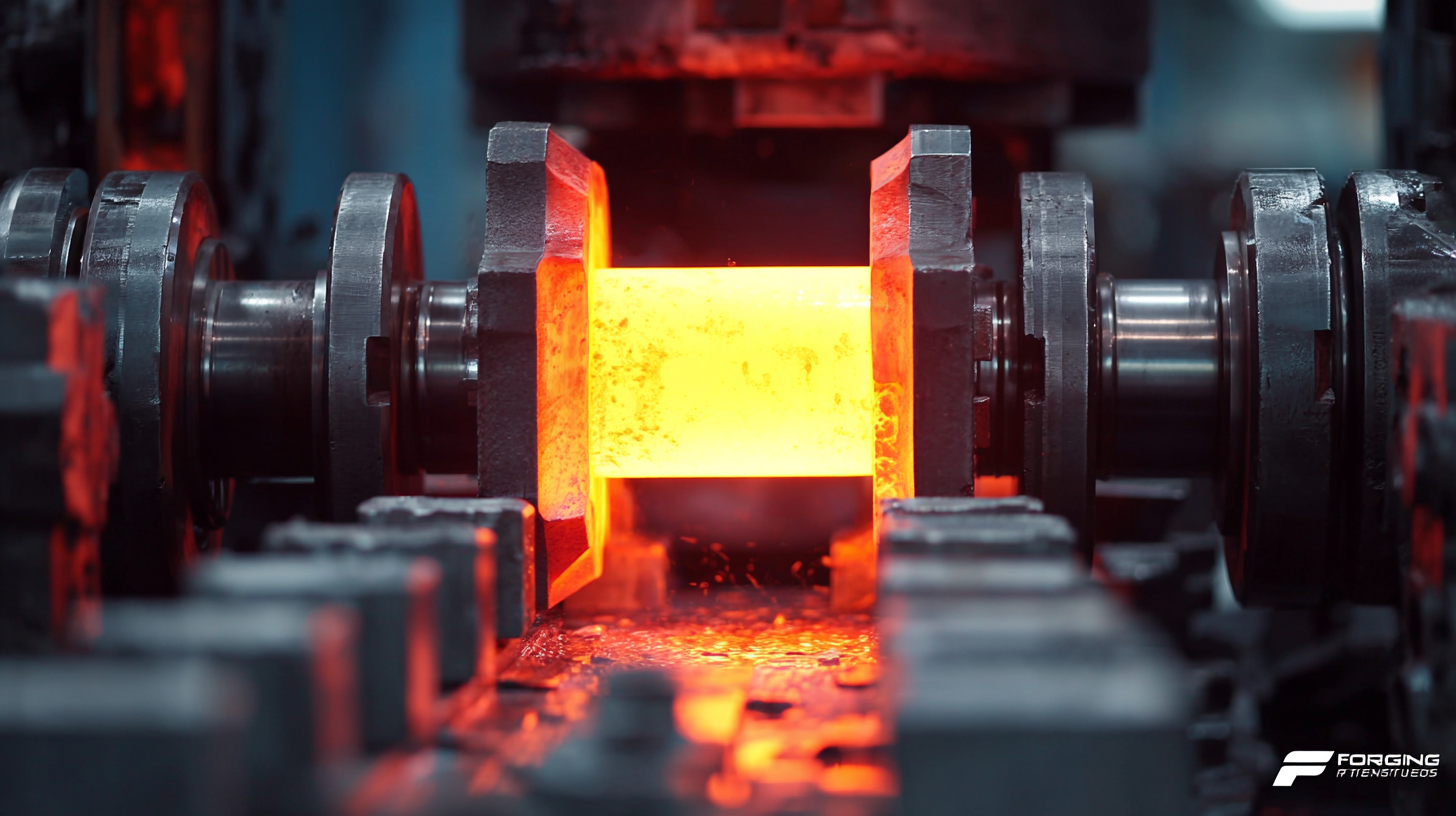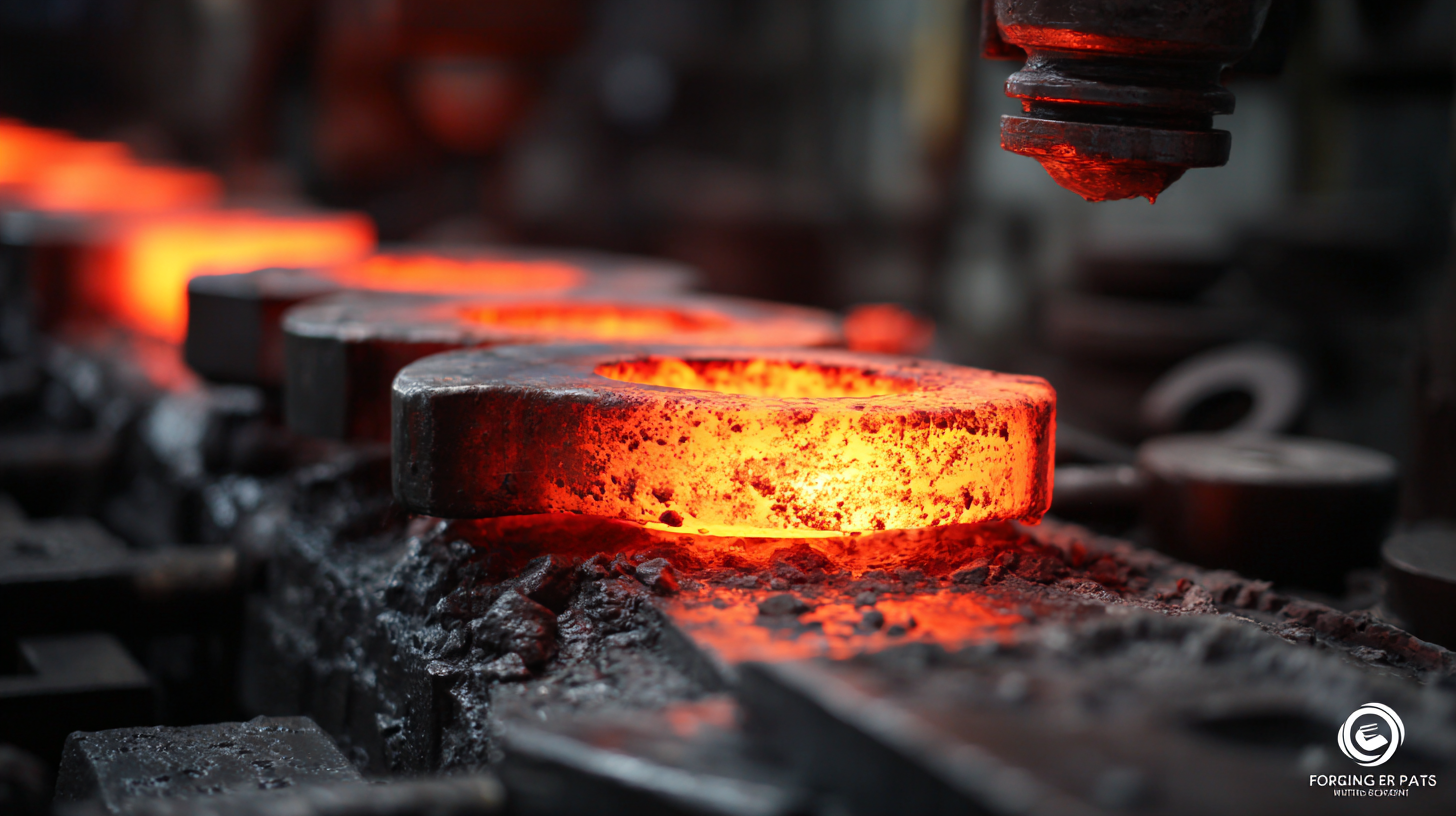Choosing the Right Manufacturer for Best Forging Parts Solutions You Can Trust
In today's competitive industrial landscape, choosing the right manufacturer for forging parts is crucial for ensuring quality and reliability in production. With the global forging market projected to reach approximately $250 billion by 2026, according to a recent report by Research and Markets, the demand for high-quality forging solutions continues to rise. Manufacturers must prioritize sourcing from trusted partners who can provide the expertise and advanced technology necessary to meet stringent specifications. Considering that forging parts often play critical roles in applications ranging from automotive to aerospace, the selection process demands careful evaluation of a manufacturer's capabilities, track record, and commitment to excellence. This blog will explore essential strategies for identifying reputable forging parts manufacturers and highlight the key attributes that differentiate industry leaders from the rest.

Key Factors in Evaluating Forging Manufacturers for Quality Assurance
When selecting a manufacturer for forging parts, quality assurance is paramount. One of the key factors to evaluate is the manufacturer’s certifications and industry standards adherence. Look for certifications such as ISO 9001, which indicates a commitment to quality management systems. Ensuring that the manufacturer has a comprehensive quality control process in place, including regular audits, can help assure that the products produced meet the required specifications consistently.
Another critical aspect is the manufacturer’s experience and expertise in the specific type of forging required. Engaging with a manufacturer that has a proven track record in producing similar parts can provide greater confidence in their capabilities. Furthermore, their knowledge of materials and forging techniques can lead to improved product performance and reliability. Lastly, consider the manufacturer’s investment in technology and equipment, as modern machinery can enhance precision and reduce lead times, ultimately contributing to better quality assurance in the finished products.
Choosing the Right Manufacturer for Best Forging Parts Solutions You Can Trust
| Criteria |
Importance Level |
Evaluation Score (1-10) |
Comments |
| Manufacturing Experience |
High |
9 |
Extensive history in forging operations. |
| Quality Control Standards |
Critical |
10 |
ISO certified processes in place. |
| Customer Service |
Medium |
8 |
Responsive and helpful support team. |
| Technological Capabilities |
High |
9 |
Advanced machinery and techniques. |
| Delivery Reliability |
High |
8 |
Timely delivery with low lead times. |
| Cost Competitiveness |
Medium |
7 |
Prices align with industry standards. |
| Post-Sale Support |
Medium |
8 |
Adequate resources for after-sales service. |
Understanding Common Challenges in Forging Parts Production and Their Solutions
When it comes to forging parts production, manufacturers often face a variety of challenges that can impact the quality and efficiency of their output. One common issue is the material selection process. Choosing the wrong material can lead to
product failures or excessive waste. To mitigate this, manufacturers should consider the end-use of the parts and consult with materials engineers to ensure the selected materials meet both
performance and cost requirements.
Another challenge is maintaining consistent quality during the forging process. Variability in temperature, pressure, and tooling can result in defects. Implementing
strict quality control measures, including real-time monitoring and regular maintenance of equipment, can help address these issues.
Tips: Ensure to conduct thorough testing of materials before initiating large production runs. Additionally, invest in training for employees to recognize and correct potential quality issues early in the production cycle. This proactive approach not only enhances product reliability but also fosters a culture of quality within the organization.
The Role of Technology in Enhancing Forging Processes and Product Integrity
The forging industry has experienced significant technological advancements that enhance both the efficiency of processes and the integrity of products. According to a recent report from Grand View Research, the global forging market is projected to reach $133.36 billion by 2025, driven by innovations in machinery and materials. Technologies such as automation, robotics, and real-time monitoring systems contribute to the precision and reliability of forged parts, leading to tight tolerances and improved mechanical properties that are critical in industries like aerospace and automotive.

Tip: When selecting a manufacturer, prioritize those that utilize advanced technologies like computer-aided design (CAD) and simulation software. These tools enable precise planning and execution of forging processes, ensuring consistent quality in the final output.
Moreover, the integration of Industry 4.0 technologies, including IoT and machine learning, is transforming forging operations. For instance, predictive maintenance systems can significantly reduce downtime by anticipating equipment failures before they occur. A report by McKinsey notes that businesses can increase productivity by up to 30% through the implementation of such smart technologies.
Tip: Ensure your chosen manufacturer is not only technologically advanced but also has a strong commitment to quality assurance practices, such as ISO certifications, which further enhance product reliability and integrity.
Industry Standards and Certifications: What to Look For in a Reliable Manufacturer
When selecting a manufacturer for forging parts, one of the foremost considerations should be the industry standards and certifications they uphold. Reliable manufacturers often comply with rigorous quality benchmarks like ISO 9001 and AS9100, which ensure that their processes meet stringent quality management criteria. These certifications signify that the manufacturer is committed to continuous improvement and customer satisfaction, offering you peace of mind that their products will meet your specifications.
Additionally, it's crucial to verify any specialized certifications relevant to your industry. For instance, manufacturers in the aerospace sector may require NADCAP certification, which indicates that they meet specific requirements for aerospace quality. By confirming these certifications, you can ensure that the manufacturer understands the nuances of your industry and possesses the expertise needed to produce high-quality forging parts that withstand the demands of their intended applications. Taking the time to research and validate these certifications can save you from costly mistakes and ensure a more reliable partnership.

Cost Efficiency vs. Quality: Finding the Balance in Forging Part Solutions
In the competitive landscape of manufacturing, particularly in forging parts, achieving a balance between cost efficiency and quality is paramount. The challenge lies in sourcing materials and processes that not only minimize expenses but also meet stringent quality standards. Innovations like wire and arc additive manufacturing are making strides in this regard, providing opportunities to enhance part quality and precision while managing heat input effectively. These advancements can lead to significant improvements in production efficiency, enabling manufacturers to produce high-quality components without escalating costs.
Moreover, as industries evolve, companies are increasingly recognizing the importance of innovative techniques such as friction welding to enhance the quality and effectiveness of their operations. This technology facilitates the production of durable forging parts while keeping costs in check, thereby creating a pathway for manufacturers to deliver reliable solutions. As aluminum forging gains traction, understanding the economic aspects, including setup costs and operational expenses, becomes crucial. By strategically navigating these elements, manufacturers can ensure they provide high-quality forging parts that drive value for their clients, ultimately establishing trust in their solutions.
Cost Efficiency vs. Quality in Forged Parts Solutions







